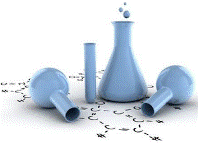Chemical and Biomolecular Engineering, Department of

Department of Chemical and Biomolecular Engineering: Faculty Publications
Date of this Version
2010
Document Type
Article
Citation
Anal Chem. 2010 August 1; 82(15): 6613–6620.
Abstract
Appropriate glycosylation of recombinant therapeutic glycoproteins has been emphasized in biopharmaceutical industries because the carbohydrate component can affect safety, efficacy, and consistency of the glycoproteins. Reliable quantification methods are essential to ensure consistency of their products with respect to glycosylation, particularly sialylation. Mass spectrometry (MS) has become a popular tool to analyze glycan profiles and structures, showing high resolution and sensitivity with structure identification ability. However, quantification of sialylated glycans using MS is not as reliable because of the different ionization efficiency between neutral and acidic glycans. We report here that amidation in mild acidic conditions can be used to neutralize acidic N-glycans still attached to the protein. The resulting amidated N-glycans can then released from the protein using PNGase F, and labeled with permanent charges on the reducing end to avoid any modification and the formation of metal adducts during MS analysis. The N-glycan modification, digestion, and desalting steps were performed using a single-pot method that can be done in microcentrifuge tubes or 96-well microfilter plates, enabling high throughput glycan analysis. Using this method we were able to perform quantitative MALDI-TOF MS of a recombinant human glycoprotein to determine changes in fucosylation and changes in sialylation that were in very good agreement with a normal phase HPLC oligosaccharide mapping method.


Comments
Copyright © 2010 American Chemical Society